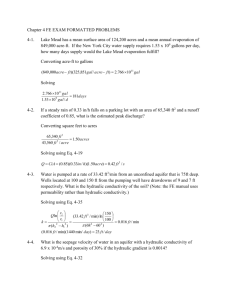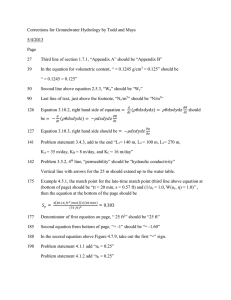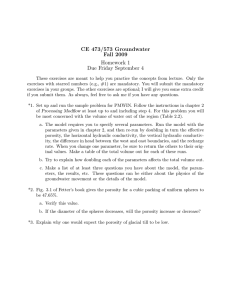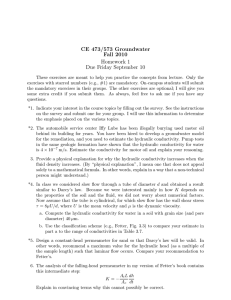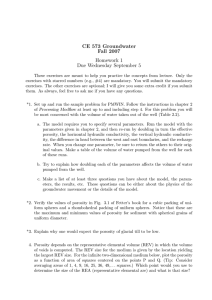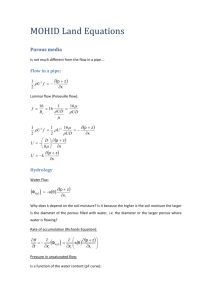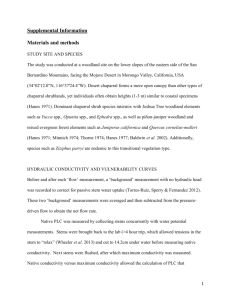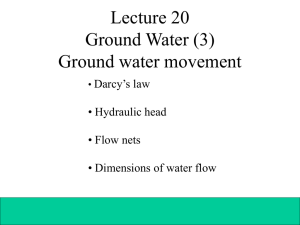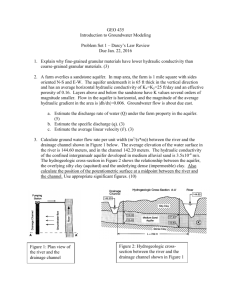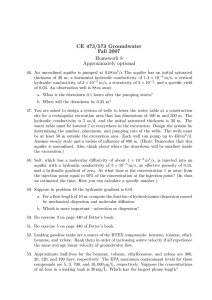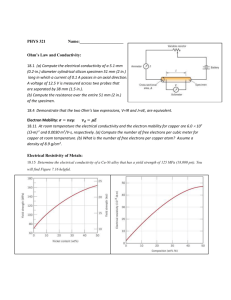Spatial and Age Related Effects on Morphology and Hydraulic
advertisement
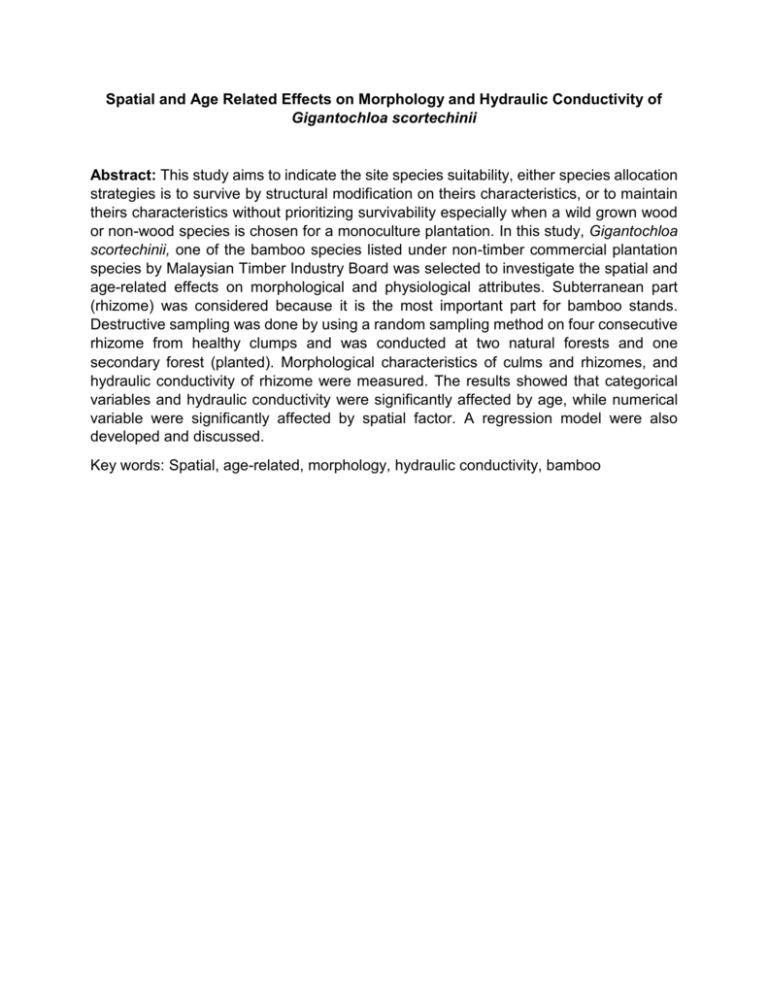
Spatial and Age Related Effects on Morphology and Hydraulic Conductivity of Gigantochloa scortechinii Abstract: This study aims to indicate the site species suitability, either species allocation strategies is to survive by structural modification on theirs characteristics, or to maintain theirs characteristics without prioritizing survivability especially when a wild grown wood or non-wood species is chosen for a monoculture plantation. In this study, Gigantochloa scortechinii, one of the bamboo species listed under non-timber commercial plantation species by Malaysian Timber Industry Board was selected to investigate the spatial and age-related effects on morphological and physiological attributes. Subterranean part (rhizome) was considered because it is the most important part for bamboo stands. Destructive sampling was done by using a random sampling method on four consecutive rhizome from healthy clumps and was conducted at two natural forests and one secondary forest (planted). Morphological characteristics of culms and rhizomes, and hydraulic conductivity of rhizome were measured. The results showed that categorical variables and hydraulic conductivity were significantly affected by age, while numerical variable were significantly affected by spatial factor. A regression model were also developed and discussed. Key words: Spatial, age-related, morphology, hydraulic conductivity, bamboo
